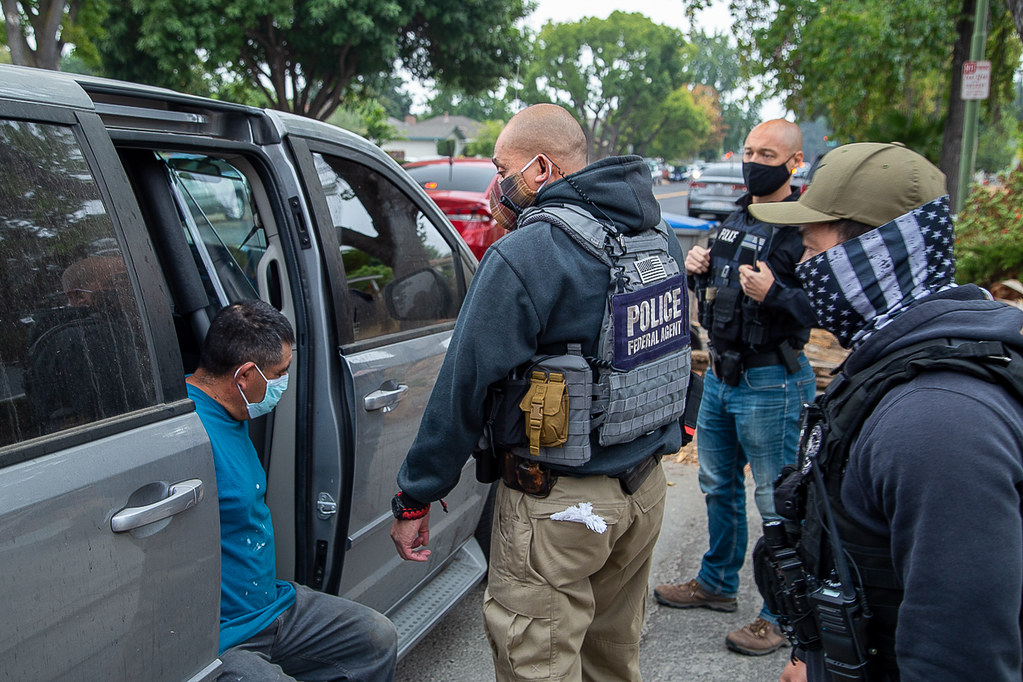By Allan Lengel
ticklethewire.com
ALEXANDRIA, Va. – He was a presence on the witness stand; a burly man with shaved head, glasses, facial hair and strong voice, dressed in a faded forest green prison jumpsuit with the word “Prisoner” barely legible on the back. He exuded the confidence of the businessman he once was before heading off to federal prison for bribing a Congressman named William J. Jefferson.
Time after time on Wednesday, for the second day in U.S. District Court in Alexandria, the government’s key witness Vernon L. Jackson, 58, steadily delivered damaging blows, saying Jefferson had essentially lied and deceived and lied some more.
Yes, he said, Jefferson had a hidden financial interest in his Kentucky-based high tech company i-Gate. Yes, he paid bribes to Jefferson to influence foreign leaders to promote his company that was selling technology to transmit the Internet and cable television in rural Africa.
Yes, he said, Jefferson was using his Congressional position in exchange for money. And Yes, Jackson knew it was wrong to pay a Congressman to promote his business. For the jurors, his prison suit was a pretty good reminder of his crime.
And oh yes. He hoped to shave some serious time off his 7-plus years prison sentence by cooperating with the government. That was the agreement when he pleaded guilty.
The testimony was not good for Jefferson, 62, a Harvard lawyer who was once unbeatable as a Congressman – that is until 2005 when the FBI found $90,000 of marked FBI bills in his freezer. The jokes never stopped. And nearly two years later, a big fat indictment followed : 16 public corruption counts that included allegations of accepting hundreds of thousands of dollar. Last year, he lost in a bid for re-election.
The testimony and documents on Wednesday showed that Jefferson had been flirting with political suicide even before the FBI entered the picture in March of 2005 and wired up a rich investor in iGate, Lori Mody, who thought she was being ripped off by Jefferson and Jackson.
In 2004, a Nigerian company was threatening to go the U.S. Justice Department and say that Jefferson had a hidden financial interest in iGate and was using his Congressional influence to promote the company.
The company, NDTV had put up $6.5 million to go into partnership with iGate, which planned to provide its technology in Nigeria to transmit the Internet and cable over copper wire telephone lines instead of fiber optic lines. Now it wanted out of the partnership; it wanted its money back and was willing to go to extremes to get it.
In a letter introduced in court Wednesday, Jefferson sounded indignant about the allegations that suggested wrongdoing. In the letter, dated May 28, 2004, Jefferson wrote to Nigerian President Olusegun Obasanjo:
“Regrettably, instead of presenting you this very important project for Nigeria, I have been made aware that the greed of two individuals, who lost their opportunity to get the project done for their company, NDTV, have thwarted the meeting through a deceitful and false petition to you alleging heinous offenses on my part and that of iGate, Inc. and it’s principals.”
“I have vouched for Nigeria as a place for U.S. investment through my work as a Chairman of the Nigerian Caucus… I have been careful to avoid conflicts and shady dealings.”
And then went on later to say: “I have never received a cent from iGate , Inc., in political contributions….. Because I believe in the technology that iGate has developed, I have encouraged friends and members of my family to invest in the company, but I have not, myself made a direct investment in iGate.”
Jackson said he considered the statements “not above board” and clearly misleading. He said he considered Jefferson’s “sweat equity” an investment. And he testified in the past two days that he had, at the Congressman’s suggestion, hired Jefferson’s wife Andrea Jefferson’s company ANJ to promote iGate.
The problem was, he said, Jefferson was doing all the work for the money and using his office to promote iGate. He said Jefferson also called some of the shots in business dealings.
Meanwhile, as the dispute with NDTV began to heat up, Jackson said he and Jefferson decided to leave Nigeria after an NDTV official tipped them off that their lives were in danger.
Jackson said the two went to the airport as soon as possible and were delayed temporarily at Customs, but finally made it through.
And that was a good thing, Jackson said, because “my understanding was the Army was on the way to get us.”
Trial resumes Thursday.





